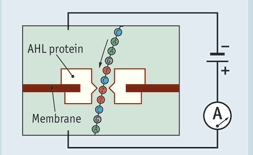Nanopore Sequencing-Towards the 15-minute genome

"Genetics: Pulling strands of DNA through tiny holes, called nanopores, could dramatically speed up the sequencing of human genomes" The Economist (12 March)
"Genetics: Pulling strands of DNA through tiny holes, called nanopores, could dramatically speed up the sequencing of human genomes" The Economist (12 March) - "It was one of the largest international scientific collaborations ever undertaken and it led, eventually, to a landmark accomplishment. Yet even with a budget of more than $3 billion and the participation of thousands of scientists, the process of mapping the human genome still took more than a decade. The technology has improved enormously since then: it is now possible to sequence a human genome in about eight days, at a cost of around $10,000. But researchers dream of being able to complete the process in a matter of hours, or even minutes, for less than $1,000. Genome sequencing could then become routine, making it much easier to identify the genetic basis of diseases or isolate the factors that cause a drug to work in one patient but not another ... According to preliminary experiments by one group, headed by Joshua Edel [Chemistry] at Imperial College London, this approach should be able to sequence an entire genome in just a few minutes."

http://www.economist.com/node/18304268?story_id=18304268&CFID=165168280&CFTOKEN=96573761
Article text (excluding photos or graphics) © Imperial College London.
Photos and graphics subject to third party copyright used with permission or © Imperial College London.
Reporter
Press Office
Communications and Public Affairs
- Email: press.office@imperial.ac.uk
